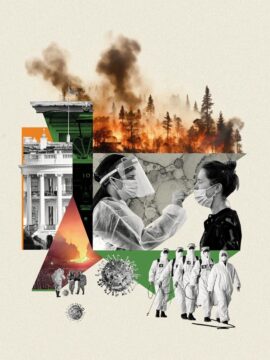Helen Pearson in Nature:
 Nature’s survey — which took place before the US election in November — together with more than 20 interviews, revealed where some of the biggest obstacles to providing science advice lie. Eighty per cent of respondents thought policymakers lack sufficient understanding of science — but 73% said that researchers don’t understand how policy works. “It’s a constant tension between the scientifically illiterate and the politically clueless,” says Paul Dufour, a policy specialist at the University of Ottawa in Canada.
Nature’s survey — which took place before the US election in November — together with more than 20 interviews, revealed where some of the biggest obstacles to providing science advice lie. Eighty per cent of respondents thought policymakers lack sufficient understanding of science — but 73% said that researchers don’t understand how policy works. “It’s a constant tension between the scientifically illiterate and the politically clueless,” says Paul Dufour, a policy specialist at the University of Ottawa in Canada.
But it’s a time of reinvention and evolution in science advice, too. Finland is one country experimenting with different models for providing advice. Many groups, including the US National Academy of Sciences in Washington DC, are trying to speed up the supply of advice to match the rapid pace at which policymakers work, or to incorporate conflicting views. Last year, the United Nations secretary-general, António Guterres, launched a Scientific Advisory Board. Many people in the field say that science-advice systems need further change. Tackling issues such as intergenerational disadvantage, youth mental health, immigration and responses to climate change require different ways of operating, says Peter Gluckman, former chief science adviser to the New Zealand prime minister and now at the University of Auckland in New Zealand. “Science advice is not designed for that at the moment.”
More here.
Enjoying the content on 3QD? Help keep us going by donating now.
